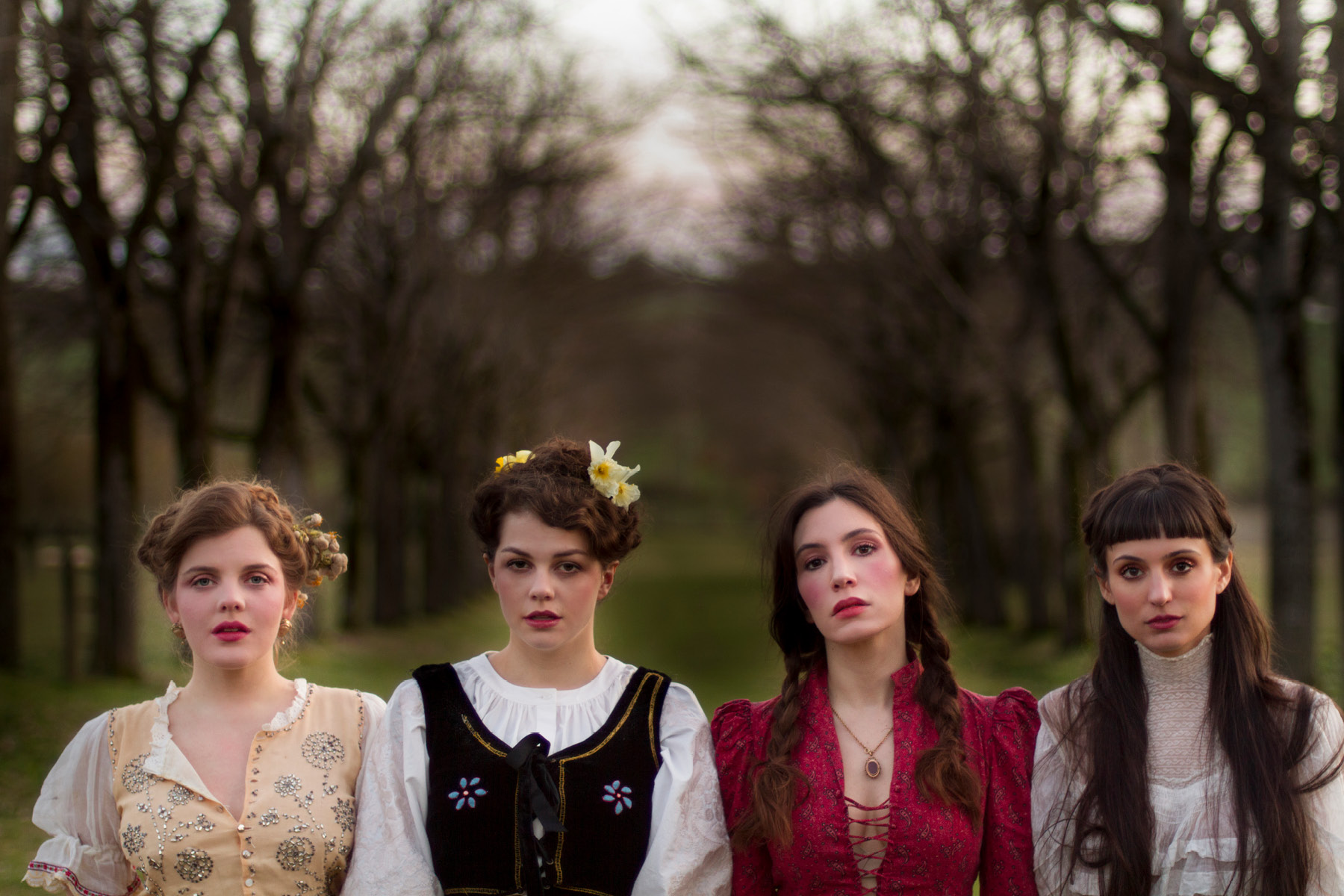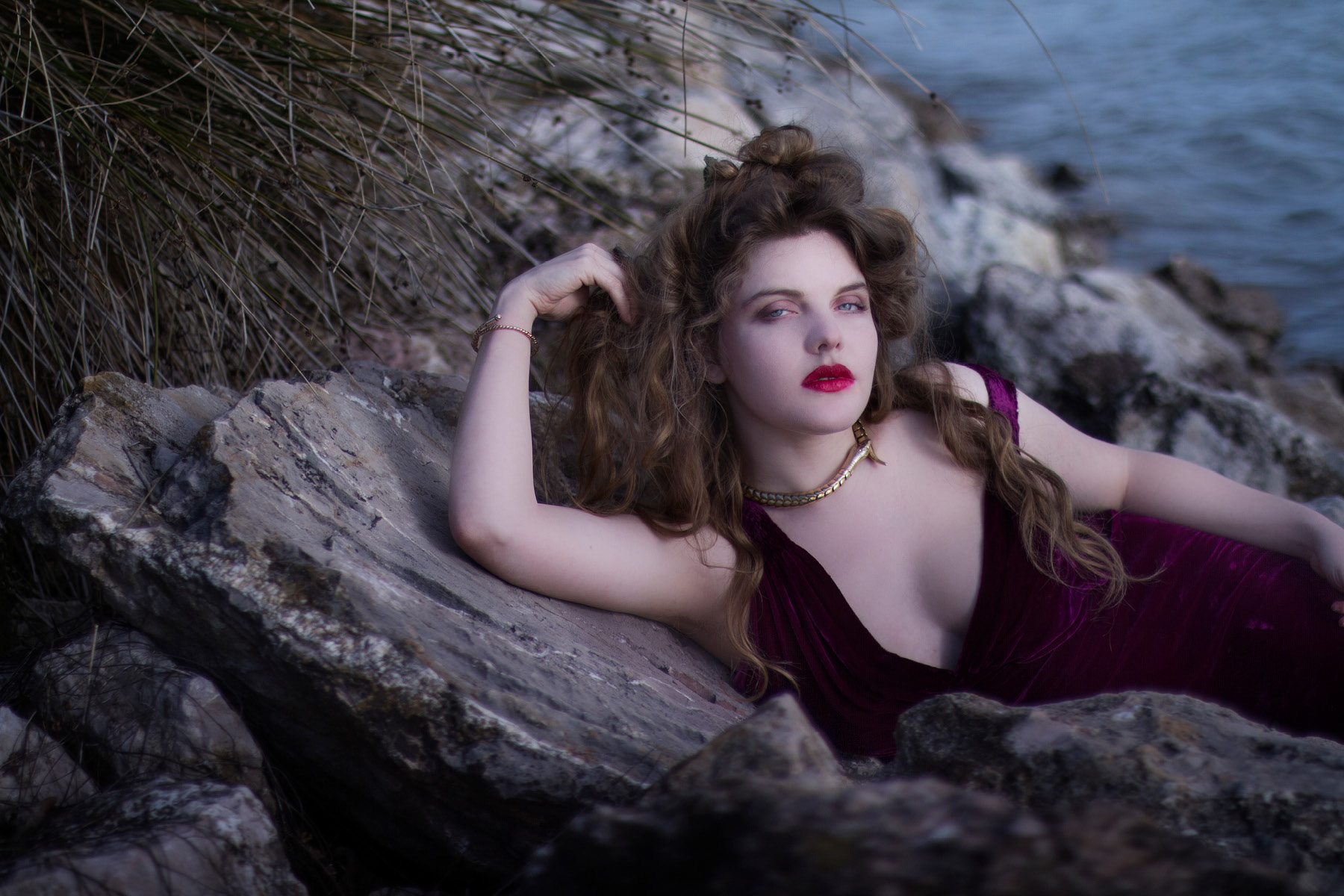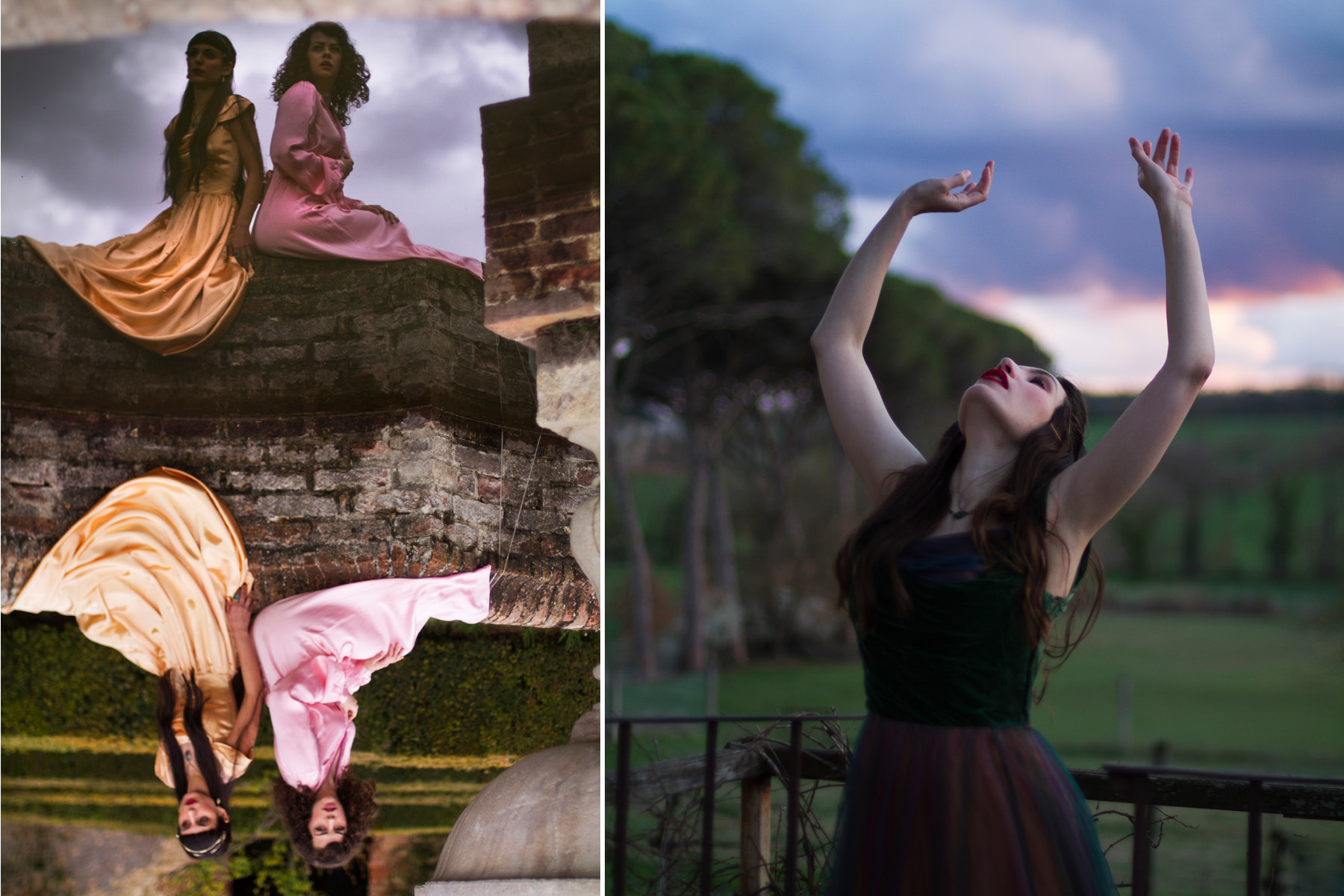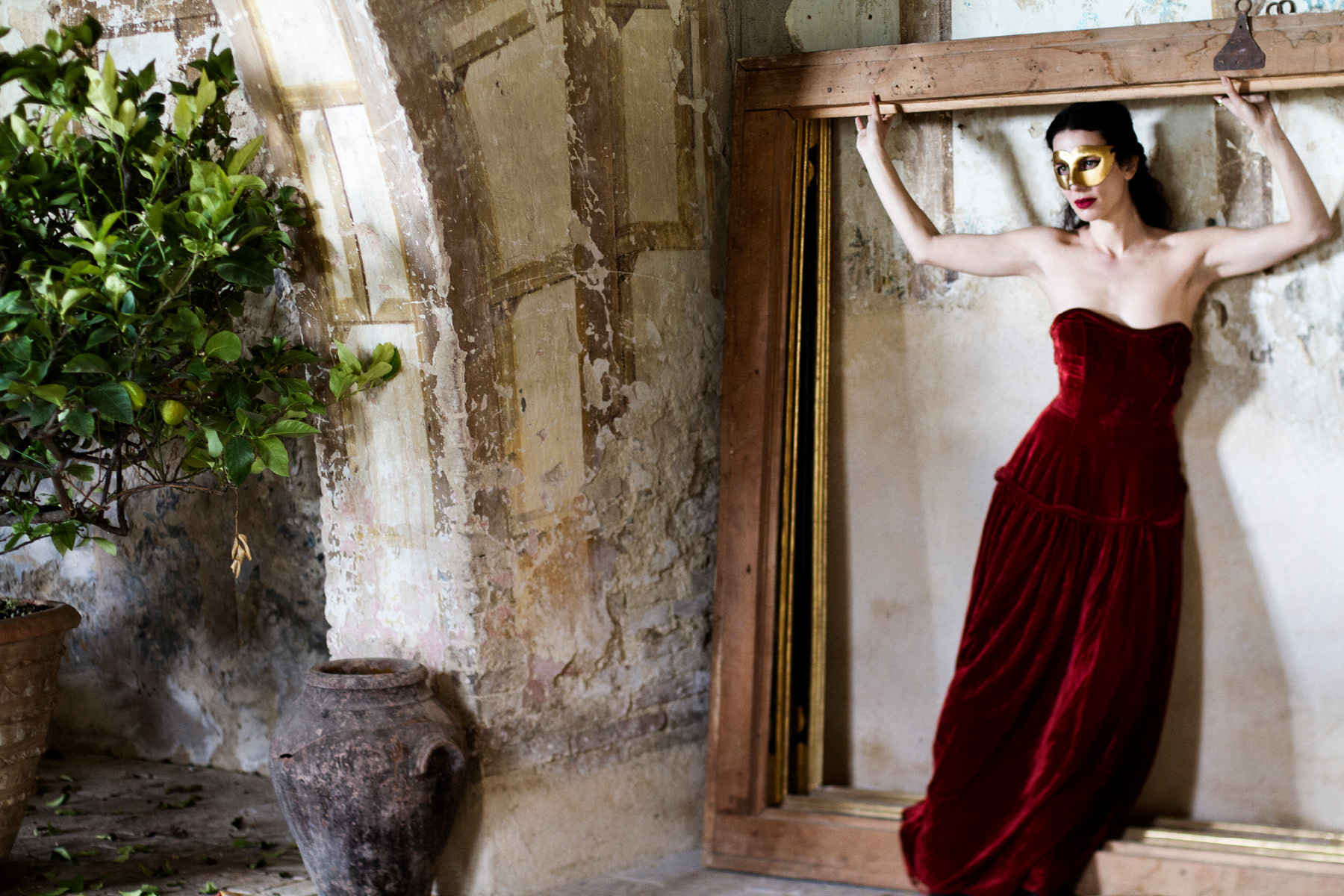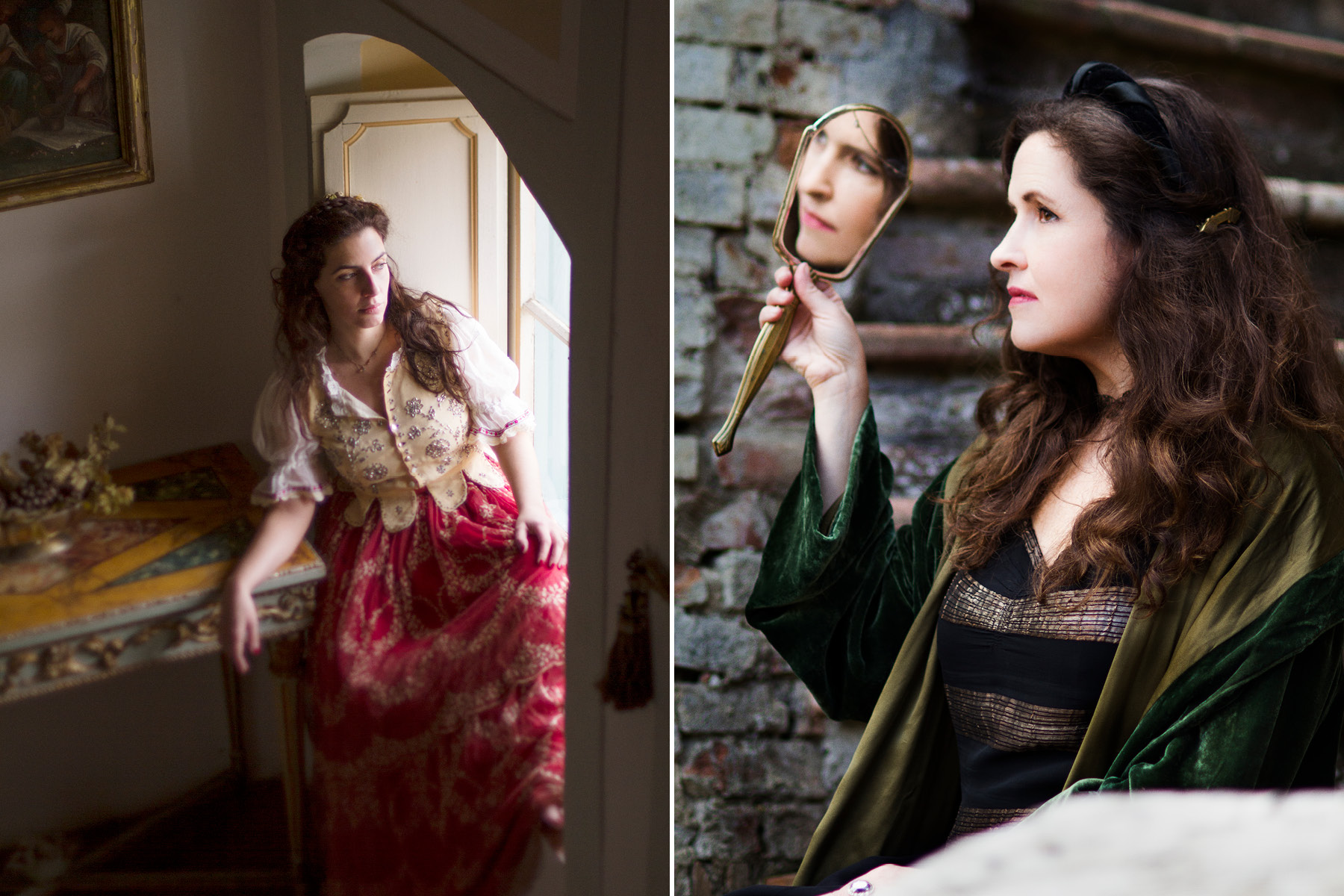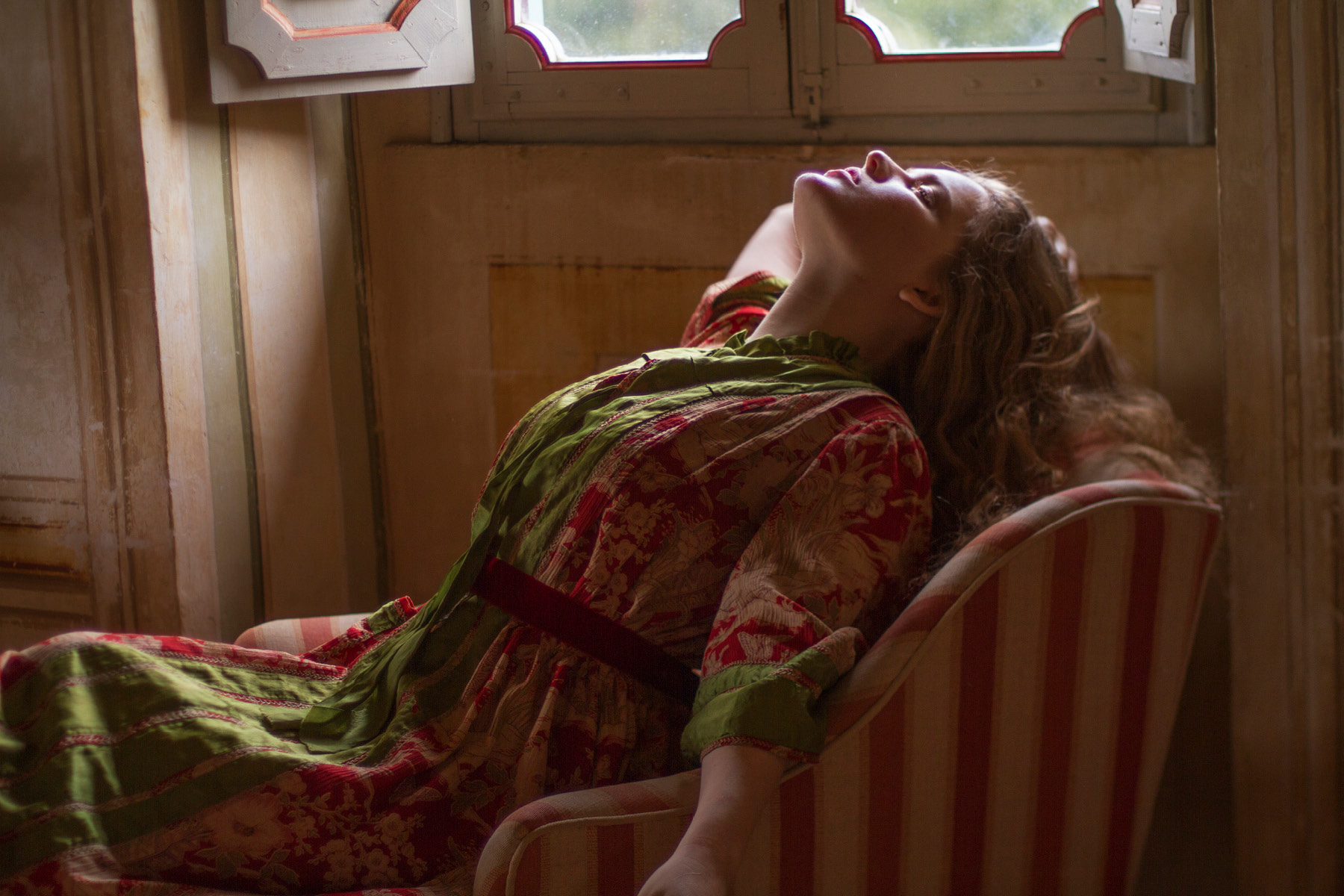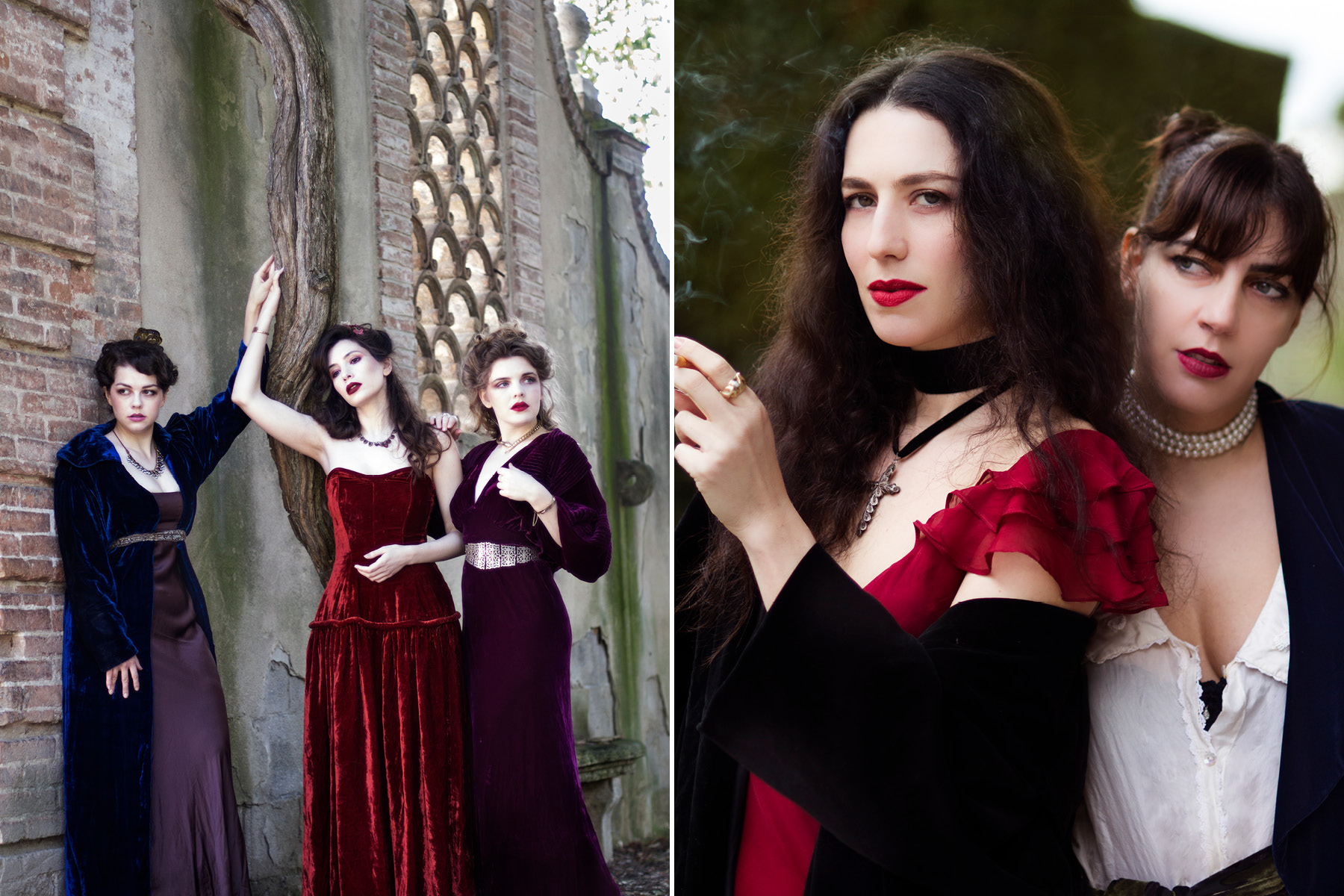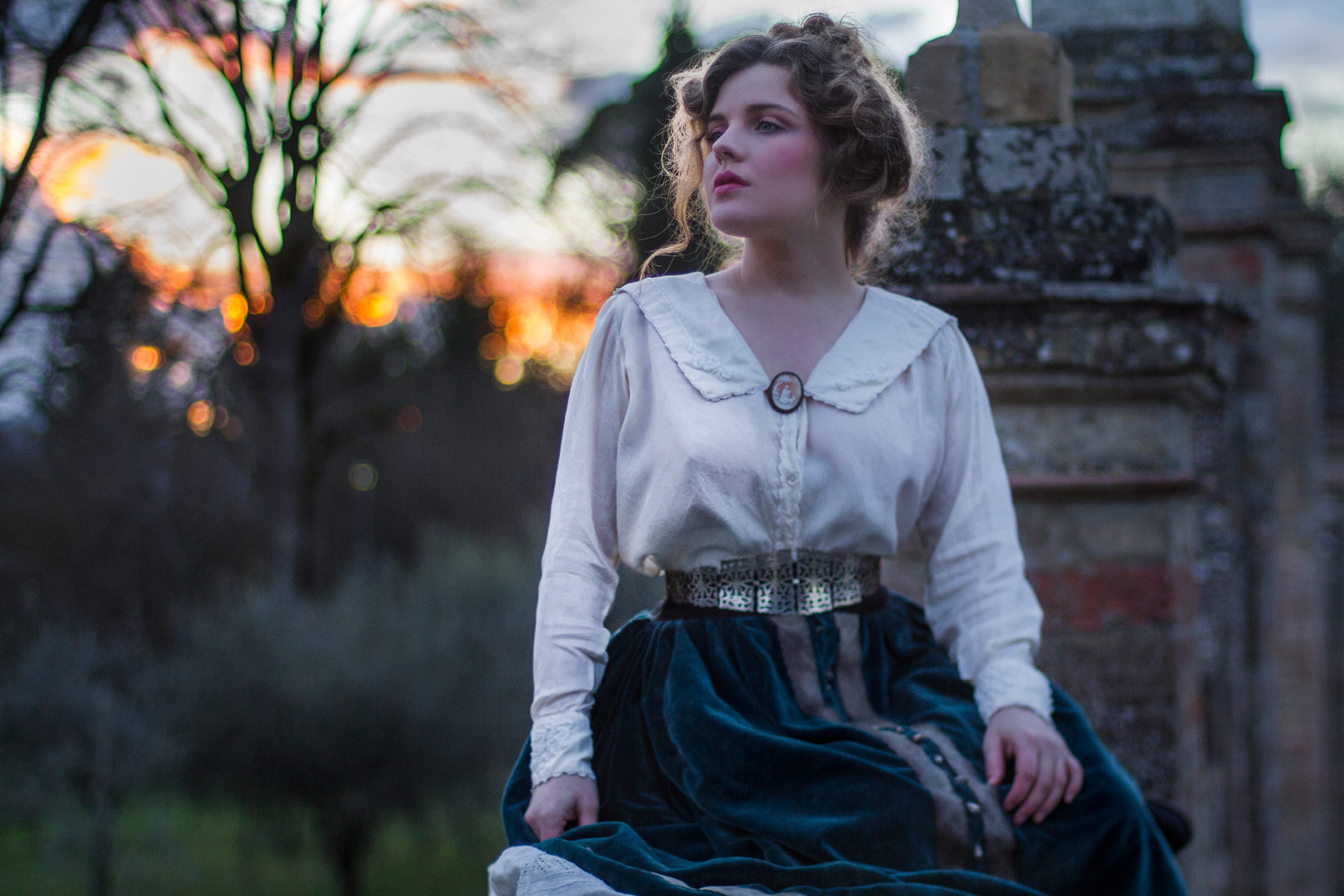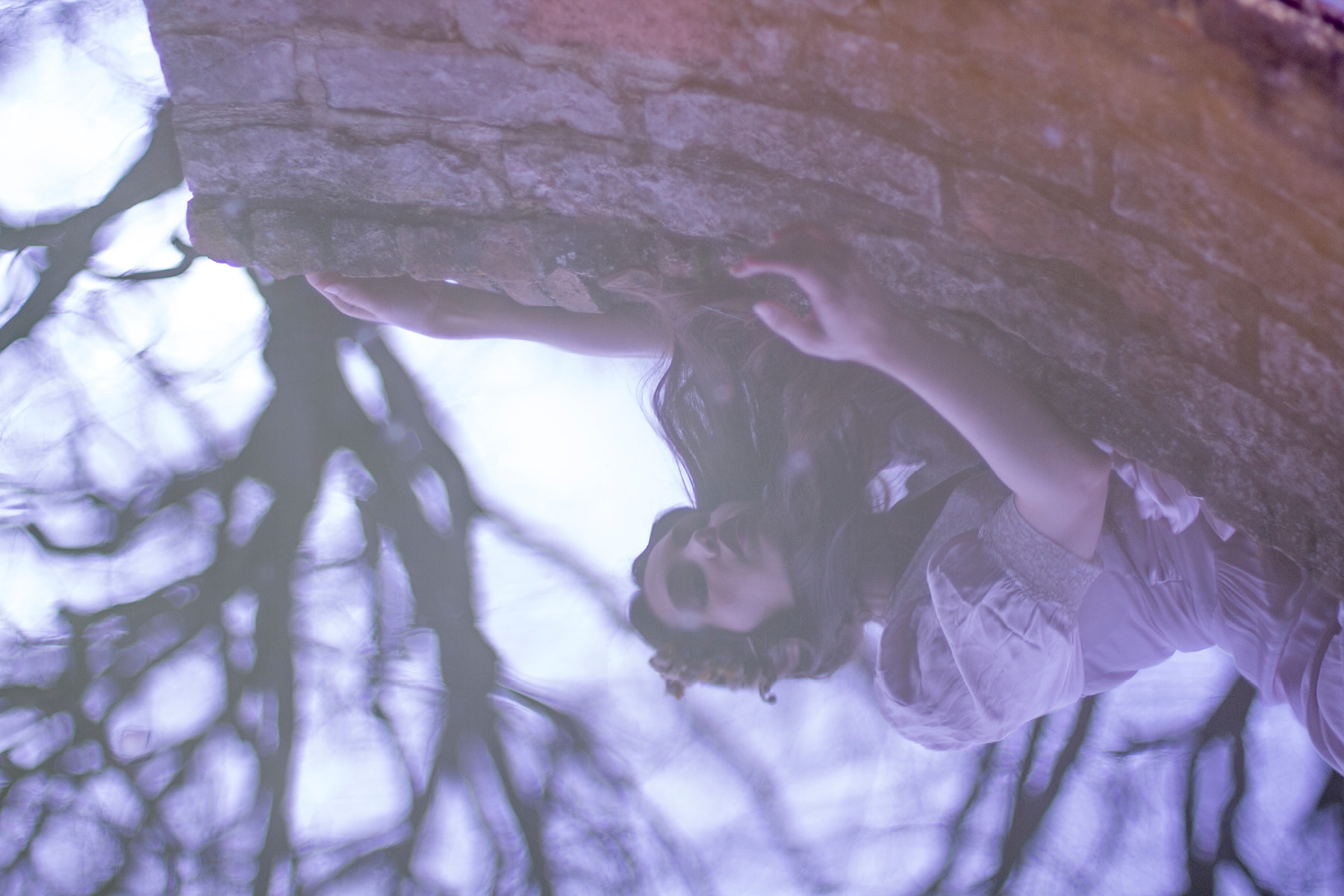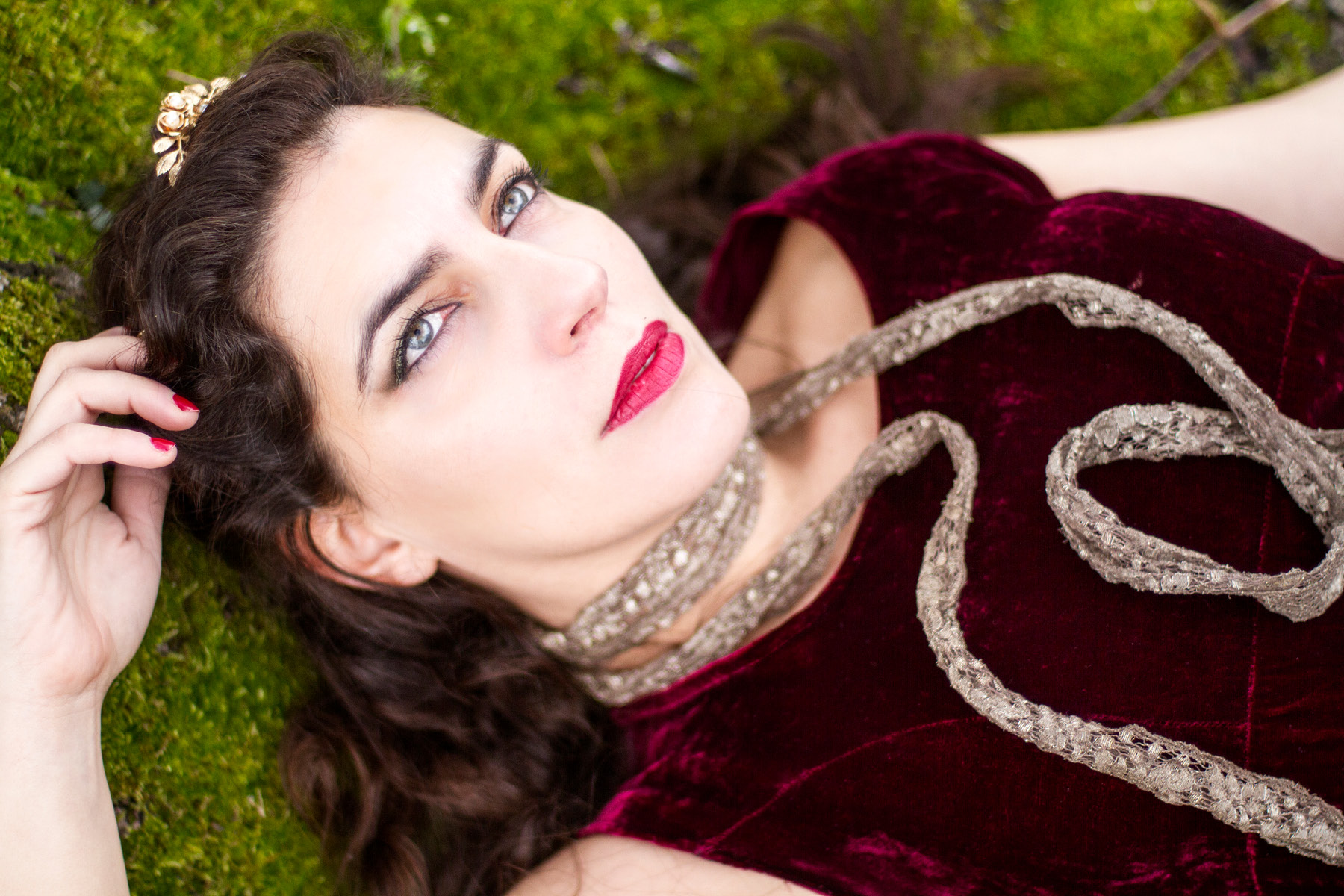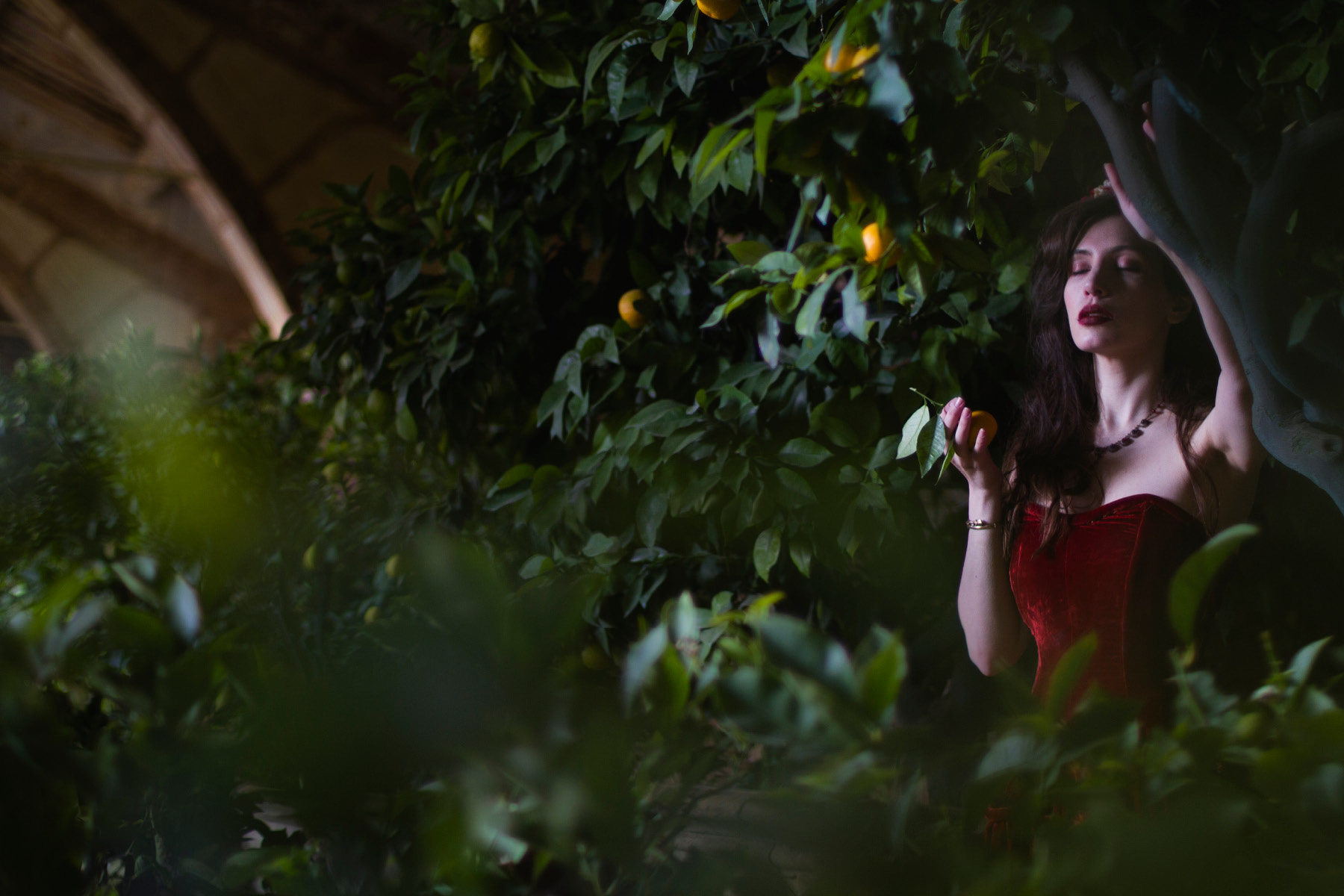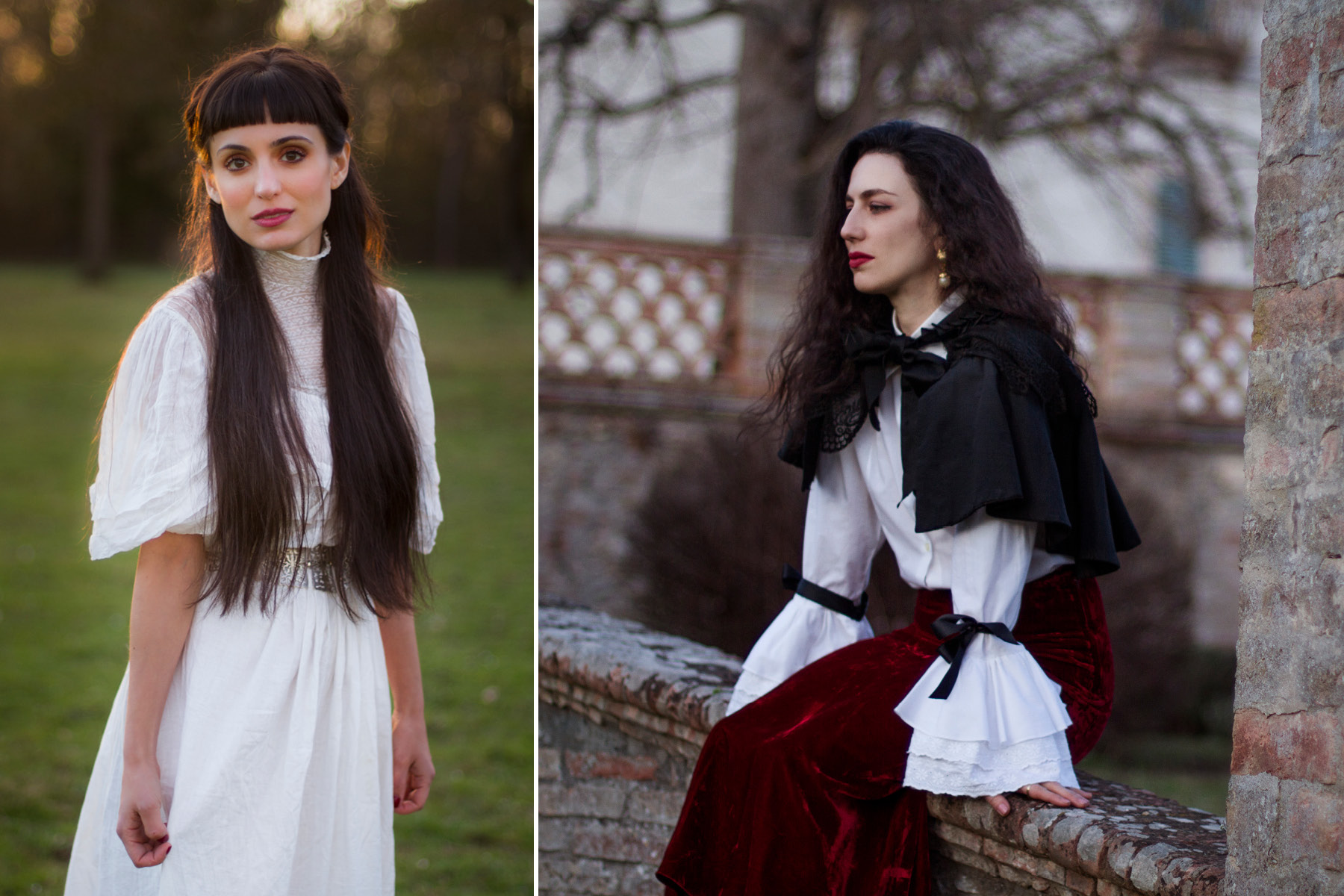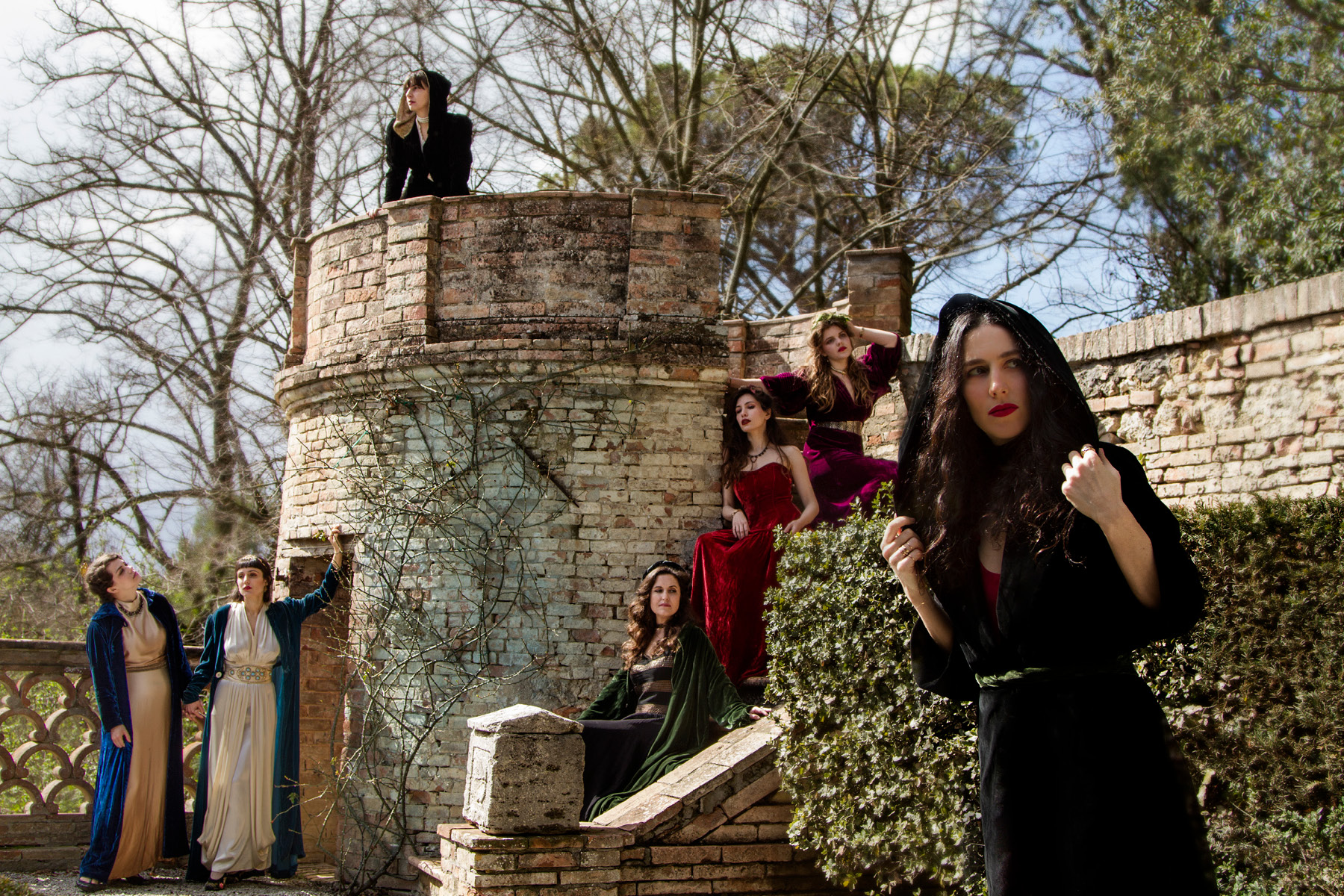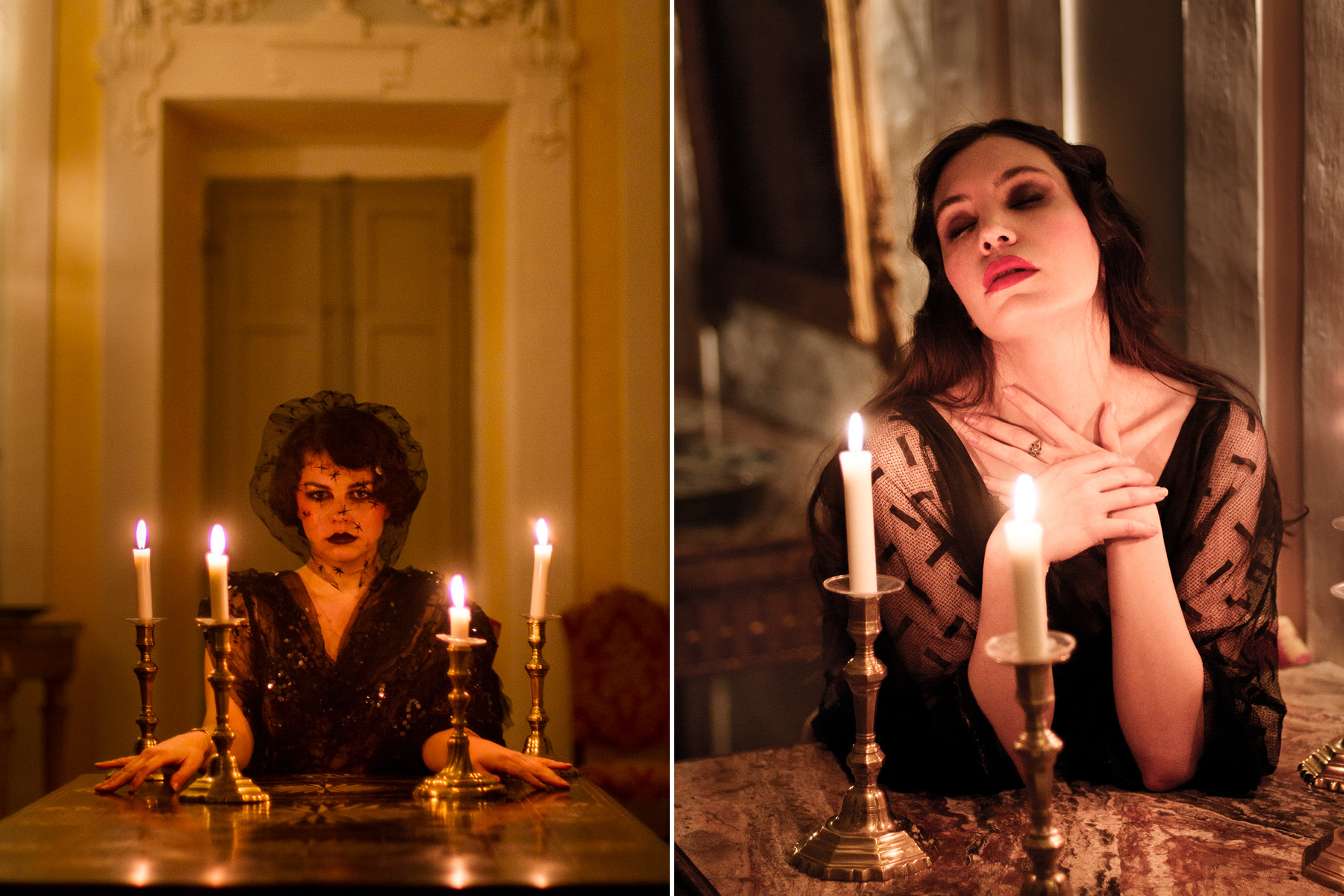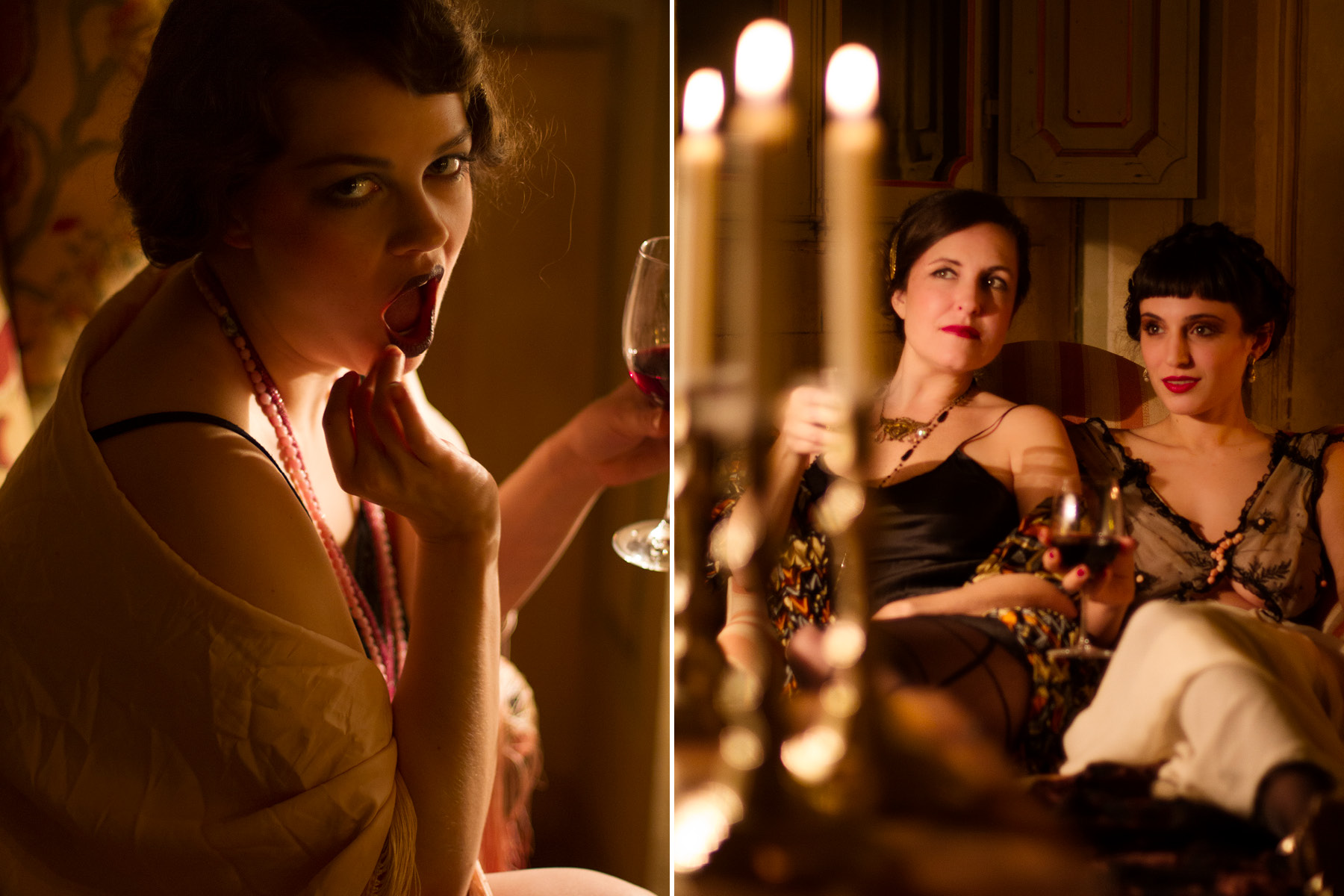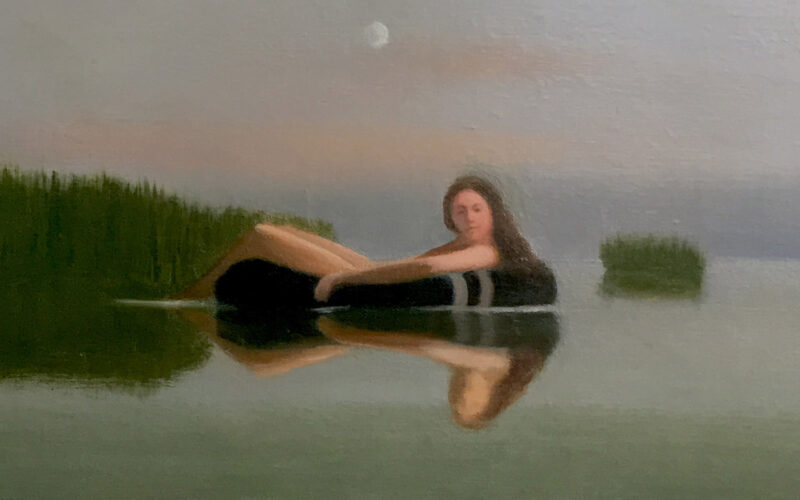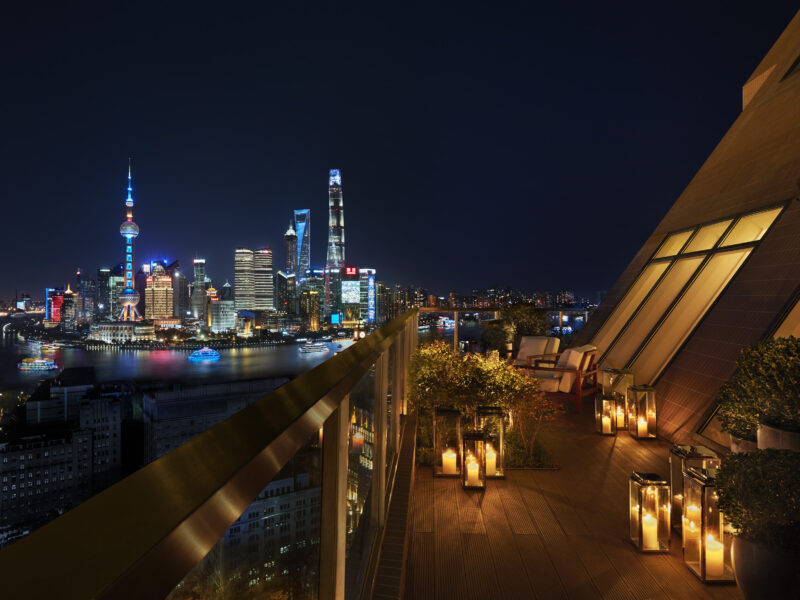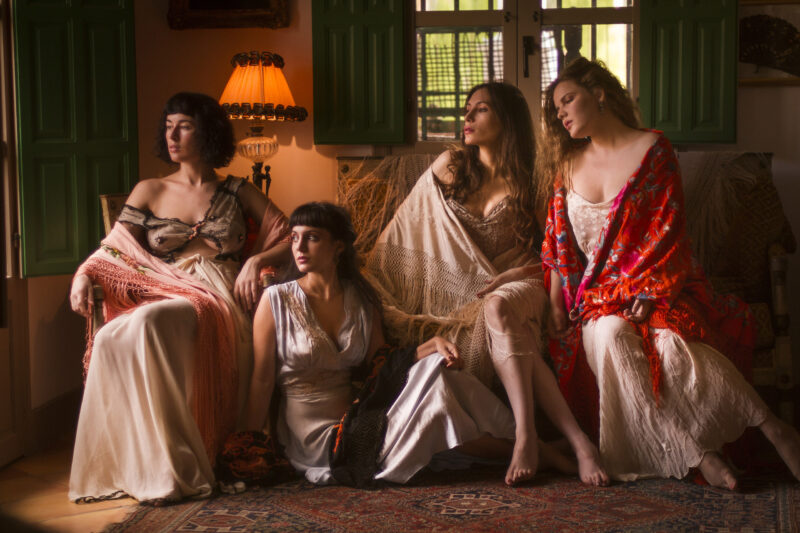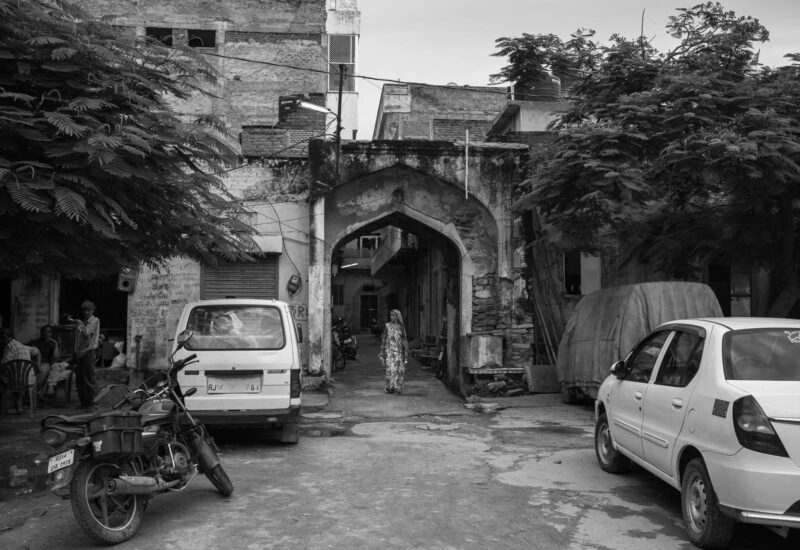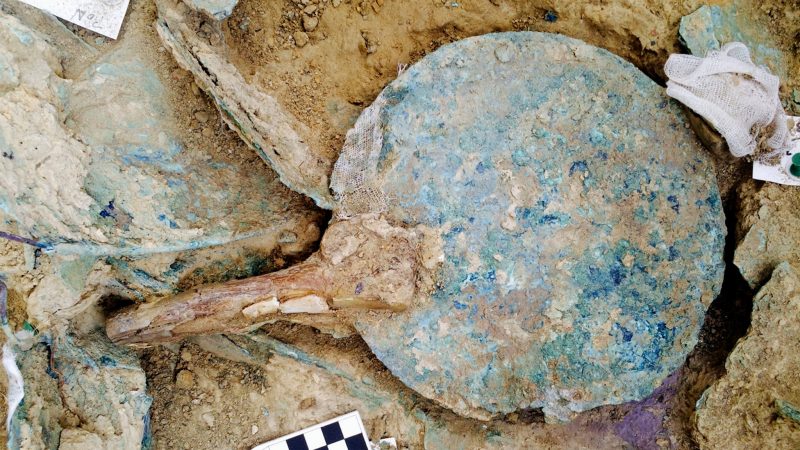On a blustery January midnight, fever descended upon actress and director, Syrie Moskowitz, and philosophy professor and designer, Gwenda-lin Grewal.
Plagued by what seemed an eternal winter, the two bought tickets to Italy, not knowing where they would go or where they would stay. They were joined in their wanderlust by two exotic Greek muses—designer, Vicky Stavrakaki, and artist, Elli Stefanidi; feminist journalist and writer, Lynn Parramore; actress, Kayla Ferguson; and bio-chemist and model, Ana Corbi, who flew in from her native Spain.
So, somewhere in between the wilds of Tuscany and Umbria, seven women convened in the middle of March. This may sound as if it will end badly. But the fairytale wrote itself.
The ladies stayed on a magical property with sheep, chickens, and an ancient stone orangery; stunning vistas stamped with umbrella pines; a garden immersed in morning fog and drenched in sherbet sunsets; and a 17th century villa that witnessed the descendants of Dante and the Nazi occupation of Italy during World War II (the walls, covered in the most stunning original paintings, still bore the scars of hardhearted military graffiti).
The ladies romped around, unmoored from the phantom of any particular prince charming, aside from the curious astrophysicist who owned the villa. At first he continued to make marmalade (the kind that gives you goose bumps) and did not think about what the ladies might be up to. But, eventually, his interest boiled over like a pot of spirulina pasta. He came knocking.
What were the seven deadly sisters doing by moonlight in the garden? By day, they traveled through Assisi, Siena, Perugia, Bomarzo, Orvieto, and Todi—without a thought of anything other than the romance of life. Yet, in the evening-time, they lived in nightmares and sweet dreams in tandem, for there were moments when the villa—let’s call it a castle—was eerily cold.
The castle’s history seeped into the ladies in unexpected ways. Some days it came in the form of a mysterious monk. Other days it was a cheerful carousel horse with a cannoli bridle. After seeing so many picturesque frescoes, it was as if they were living in the walls. There was a strange sense of being watched. Was it the preternatural ghost of a living saint, disembodied from a basilica ceiling? Or was it that fleeting grip of self-reflection so common in the face of a sheer paradise?
On one particular afternoon, the ladies found themselves in the 16th century Parco dei Mostri—a garden of monsters haunted by a curse against beautiful women. The women were refused entry into the garden because they were told they were in “costume.” Was looking lovely really a costume? With flowers in their hair, they poured out a motley blend of English, French, Spanish, and Italian. After all, it was not really sensible to ban visitors who looked enchanting, but to allow tourists in hoodies and jeans.
Maybe so many ladies at once seemed suspicious. Although they made themselves at home in the castle, their presence begged the question: why were seven women traveling together—and with suitcases full of velvet in elaborate jewel tones? They could’ve been a cliché of “eat, pray, love,” but instead they were a marvelously deranged septem of Beatrices.
There was Syrie—beautiful vagabond captain, high priestess of gypsy cards, scholar of female hysteria.
There was Ana: St. Theresa, manifested as a water nymph, chemist of fountain-of-youth elixirs, collector of butterflies and human teeth.
There were the Greeks: both from Athens. Elli: goddess- mother, karaoke genius, more glittery than the constellations they saw in the wine-dark Umbrian sky. Vicki: mermaid of the Aegean, spirit of endurance, musical mix-taper minx, designer by heart.
There was Kayla: actress-alumna of Boardwalk Empire, somellier of spirits, endearingly formidable in her favorite bonnet and vintage sass; Lynn playfully tossed her out a window, but she sprouted wings and landed in the grass.
There was Lynn: foxy journalist of unrelenting wit, more than a match in cunning for the astrophysicist, let alone any other man who might dare to cross her….
And there was Gwenda-lin: author of this article, professor of philosophy and classics, necromancer of antiquity, stylist of many threads—but, really, nothing in particular.
After ten days in that blessed fortress, where they had eaten only the finest frutto di bosco, where they had seen only the most jaw-dropping art, a winged balloon dropped the nymphs back in New York, Spain, and Greece.
A trip is a time capsule only shared by those who were there. As windows are the eyes of a house, so images and words glimmer into moments that have disappeared, and maybe were never there. If there had been a handsome count or some other prince—and, believe me, they looked—it wouldn’t have been the same fairytale. When life is blustery, friends bring the spring.

